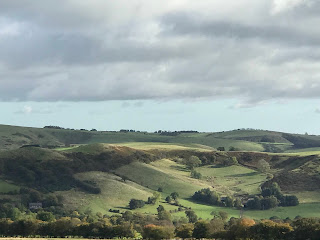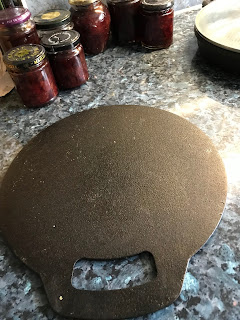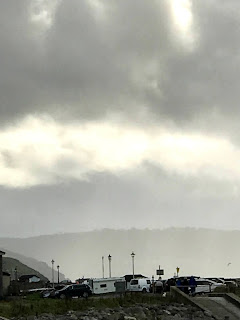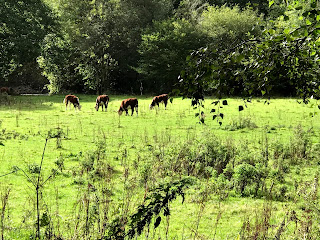Books have hidden consequences. Intrigued by a fine biography of Dennis Wheatley I made the mistake of reading his Gregory Sallust series. By book six (5 more to go) decided I didn’t like Gregory Sallust very much. He’s tireless, like the Duracell bunny, forever evading capture, getting caught, escaping, getting caught, and this goes on until the very last chapter. Exhausting stuff. The writing is competent but pedestrian with Sallust having to explain his thought processes in-between drinking champagne and eating fine food, occasionally with a woman in his arms.
Despite obvious shortcomings, what made Wheatley the best seller was his ability to pile crisis upon crisis and never letting go, a template known and followed by contemporary best-selling thriller writers. An unashamed fan of Wheatley is Neil Gaimain.
On another level, the Sallust series are compulsive reading for any who’d like to savour and slip into mindset of the recent past. They are set in World War II and are pure propaganda, the Nazis possessed of a cheap glamour but essentially subhuman and led by psychopaths.
Sallust is the kind of old fashioned ‘no nonsense’ right winger common amongst the British establishment at the time, his mindset not so far away as the fascists he fought. There is throughout a sense that there could be a rapport with ‘sensible’ Nazis like Goering, a view likely shared by others amongst whom Wheatley circulated, likely by Wheatley himself. Certainly, he has the ability to get in the mind of those who saw Bolshevism as a more profound menace to civilisation.
In Sallust, Wheatley is following the old dictum of ‘write what you know.’ His hero very much shadows Wheatley’s own life, surviving the rigours of naval training in HMS Worcester and finding in ‘Sir Pellinore Gwayne Cust’ the idealised father figure Wheatley himself lacked. The books are replete with British war time strategy and breathe Wheatley’s own experience as a ‘Wing Commander’ in the war office. In ‘The Black Baroness’ Sallust is posted there, too, following the same route and with the same title as Wheatley.
One of the less obvious pleasures of the series are insights and references to long forgotten places, such as the Hungaria Club. Throughout, Wheatley writes about what he knows, and you enter his world and, with google, an infinite number of rabbit holes. The Hungaria for example.
The Hungaria was founded by Joseph Vecchi, and hotels ran through his veins (an unfortunate image, I’m sorry) Vecchi was a friend of Wheatley, so of course he and the Hungaria appear in his novels.
Joseph Vecchi
Vecchi's career began in Claridges before moving on to the Grand Hotel in St Petersburg, where he was restaurant manager; soon after, he established a restaurant of his own in Kiev. After the Bolsheviks confiscated what he’d built up, Vecchi fought with the White Russians in the civil war, and finally walked 200 miles to Murmansk, where he was rescued by the British navy. After a short period of unemployment in London, he found work at the Hotel Piccadilly and crowned his career by opening the Hungaria Club, his lasting achievement—in legend though alas no longer a reality.
There he told scandalous tales of Rasputin, whom he’d entertained along with up to twenty Russian aristocrats, all of them women. Here, too, Wheatley would entertain the likes of Aleister Crowley, tapping him for ‘The Devil Rides Out’ and other satanic novels. Gregory Sallust, too, dines at the Hungaria in a world where fact and fiction overlap









































